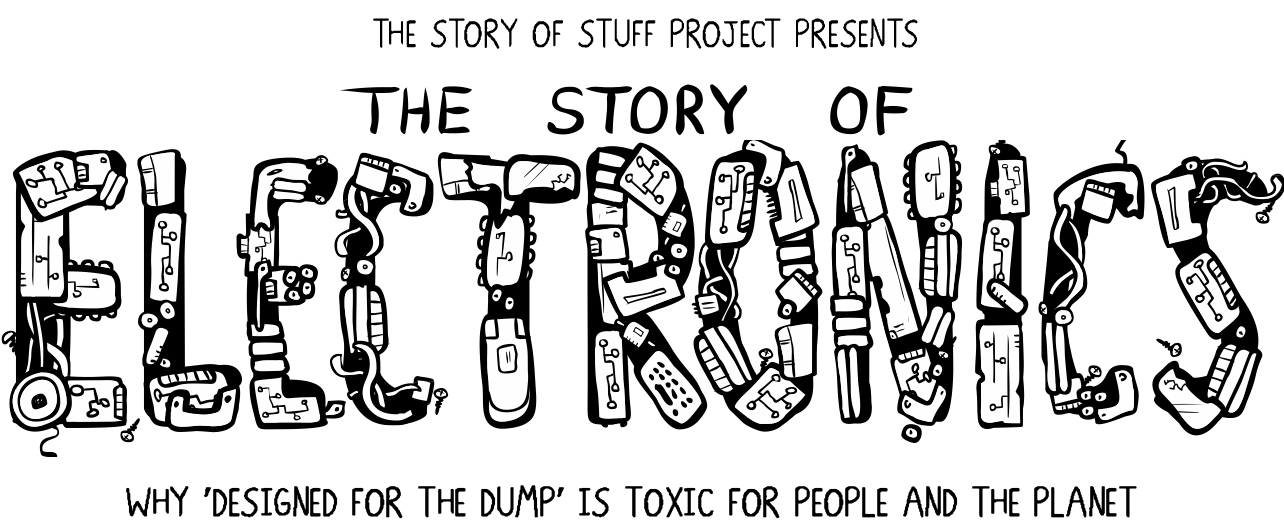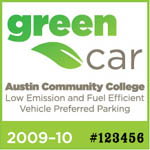Environmental Groups See Clean Energy Groundwork Laid for the Future
(Austin) Senate and House members from both political parties showed unprecedented support for developing more renewable energy and energy efficiency in Texas by filing a large number of clean power, green jobs bills in the 81st Texas State Legislature. A number of major bills passed either the House or the Senate. Ultimately, political disagreements over other issues and over the size and extent of the programs delayed and killed most of these excellent legislative initiatives.
Environmental groups Sierra Club, SEED, Public Citizen, Environmental Defense Fund, and Environment Texas applaud the passage of some clean energy, green jobs legislation and view the Legislature as having laid ample groundwork for the future.
“The fact that both the House and the Senate passed major legislation on energy efficiency and renewable power with bipartisan agreement shows that Texas leaders are willing and able to develop clean power and green jobs for our state,” noted Cyrus Reed, Conservation Director of the Lone Star Chapter of the Sierra Club. “Nevertheless, leaders were distracted by undue influence from industry interests and by the Voter ID debate which hampered passage of clean energy bills and other more vital areas of legislation.”
“Texas is moving more slowly than a melting glacier toward developing global warming policy. Rather than implementing already available energy efficiency and distributed energy solutions, Texas’ response to global warming is to develop futuristic industrial-sized solutions. As a result the state has legislation pending that may develop standards for large scale carbon sequestration projects and provide incentives to get companies to develop the technologies,” said Tom “Smitty” Smith, Director of Public Citizen’s Texas office. “On the positive side, the state has passed a study to develop a series of ‘no regrets’ solutions to global warming that the State can achieve at no cost. Also, the Texas House, especially the House Committee on Environmental Regulation, should be applauded for their more open leadership style this session which lead to far more reasoned and less ideological bills being developed in the committee.”
Clean Power, Green Energy Bills that passed both bodies and will go to the Governor (as this release goes to press):
- Green fleets legislation to promote low emissions and plug-in hybrid vehicles for fleets of major State Agencies (HB 432);
- Legislation allowing cities to create financial districts to loan money for renewable power and energy efficiency (HB 1937).
- Legislation setting a ‘no regrets’ strategy for greenhouse gas reduction in the State; a study of the state’s energy use to find ways to reduce our emissions and save money at the same time (SB 184)
- A coordinated green jobs strategy including funds allocated for child care programs, vocational training initiatives, energy efficiency measures, the Weatherization Assistance Program (WAP), and/or any other recovery funds (passed as a Rider to Article 12).
- Green fee bill passed allowing governing board of public colleges and universities to institute an environmental service fee once approved by student body election.
“This has been a disappointing session,” said Luke Metzger, Director of Environment Texas. “However, with the passage of HB 1937, we can start the ball rolling on developing Texas’ solar future, working with local communities one at a time to start financing solar and energy efficiency projects.”
Groundwork Laid for Next Session
The major Clean Power, Green Jobs bills that passed the House or Senate but did not ultimately make it to the Governor’s Desk include:
- Raising the state’s minimum residential and commercial building codes from 2001 to 2009 standards (passed Senate as SB 16 and HB 2783 in House);
- Raising the utility efficiency goal (SB 546 passed both houses but no agreement was reached between Senator Fraser and Representative Anchia on the size of the goals)
- Adopting appliance efficiency standards for a variety of products, including pool pumps (passed Senate as SB 16)
- Creating a 1,500 MW Emerging Technology Renewable Standard (SB 541 – passed the Senate)
- Creating a $500 million solar incentive program (SB 545 – passed the Senate).
- Creating a Policy requiring utilities and retail electric providers to pay consumers fair buyback rates for excess electricity generation from renewable energy (HB 1243 – passed House and Senate, but was killed in the House through concerns over germaneness and Senate amendments.);
- High performance energy efficiency building standards for state buildings, including universities and public schools (HB 431). The Senate may pass the conference committee report today, on Sine Die.
Factors which prevented bills with bipartisan support from making it across the finish line:
- The issue of Voter ID, which put many major efficiency and renewable bills too far down the calendar for consideration in the House;
- A disagreement over the germaneness and concern over the possible costs to low-income residents of adding the solar incentive bill (SB 545) to the surplus electricity bill (HB 1234), which led Representative Turner to ultimately kill consideration of the bill on the House floor;
- The election of a new Speaker and the naming of new Committee Chairman understandable led to some delays in getting the committees up and running to begin to consider bills;
- Disagreement between House and Senate on size and scope of goals set by solar and energy efficiency bills (SB 545 & 546);
- Disagreement over the potential costs and benefits of the Renewable Portfolio Standard (SB 541);
- Opposition from the Texas Manufacturers Association, the Governor and many utilities against the Renewable Portfolio Standard.
“We were happy to find some new allies this session including certain members of the legislature and some electric utilities that said they supported renewable energy and energy efficiency legislation,” said Jim Marston, Director of Texas Regional Office of Environmental Defense Fund. “Sadly, some of the electric companies talked a good game, but their support evaporated when opposed by their affiliated retail electric providers or others in the industry. In the end, the Association of Electric Companies of Texas reverted to representing the interests of the regressive elements of their membership harming the ability of Texas to participate successfully in the new energy economy.”
“Moreover, the Texas Association of Manufacturers (TAM) while acknowledging that an expanded renewable portfolio standard was the way to bring clean technology jobs to Texas, distributed false cost information about solar legislation that was repudiated by the PUC and others. The bottom line, TAM fought legislation that would have brought new manufacturing jobs to Texas,” said Marston.
Nuclear Bills Blocked
Environmental groups blocked bad bills that would have removed citizen rights to contest permits and would have promoted nuclear power in the State which many view as a financial drain from investment in truly clean energy.
“Nuclear power is expensive, consumes vast quantities of water, comes with serious security and health risks and creates radioactive waste, for which there is no good storage solution. We were happy to block two bad bills this session that were designed to benefit proposed nuclear reactors in Texas,” said Karen Hadden, Director of the Sustainable Energy and Economic Development Coalition.
The nuclear bills that were blocked:
- Fast tracked water permits for nuclear power plants and cut out contested case hearings (HB 2721 was left pending in House Environmental Regulation Committee)
- Subsidies for proposed nuclear power plants in the form of tax rebates (HB 4525 passed the House and was blocked in the Senate.)
“Representative Flynn’s bill would have fast-tracked water permits for nuclear plants, an outrageous attempt in a time of statewide drought,” said Hadden. “It would also have denied citizens an opportunity to contest issuance of the permits through hearings, an assault on democratic process. The other bad bill that we defeated would have given massive subsidies to nuclear power in the form of tax rebates.”
Miscellany
- A good bill to address the Compact Loophole for the Andrews County Low-Level Radioactive Waste Dump bill, HB 3423 Lon Burnam did not get out of Committee.
- Environmental groups blocked a bad provision that would have fast tracked water permits for “clean coal” plants in the final version of HB 469 and added cleaner emissions standards for those plants.
- HB 821 passed, requiring television manufacturers that sell televisions in Texas to make free and convenient recycling available. Texas Campaign for the Environment successfully advocated for this bill.
- Sen. Ellis used a threatened filibuster last night to kill HB 3827 which would have allowed oil companies to evade liability for MTBE water contamination;
- SB 2169 Sets up an interagency working group, co-chaired by the Texas Commission on Environmental Quality, the Texas Department of State Health Services, the Texas Department of Transportation with other agencies to discuss smart growth and make recommendations for developing the state in a sustainable way.
- An amendment to HB 300 creates a certification program for environmental coordinators in Texas Department of Transportation district offices. This bill is still in conference committee as this release goes to press.
“As it concludes, environmentalists can view this legislative session with some hopefulness – the Legislature is definitely involved and interested in clean energy and green jobs and did move these issues forward. But there is also some sadness – an opportunity to move significantly forward on clean energy was lost,” Cyrus Reed added. “Jobs that could have been created, and new sources of clean energy that could have been advanced in Texas were delayed this Session.”
Read Full Post »






